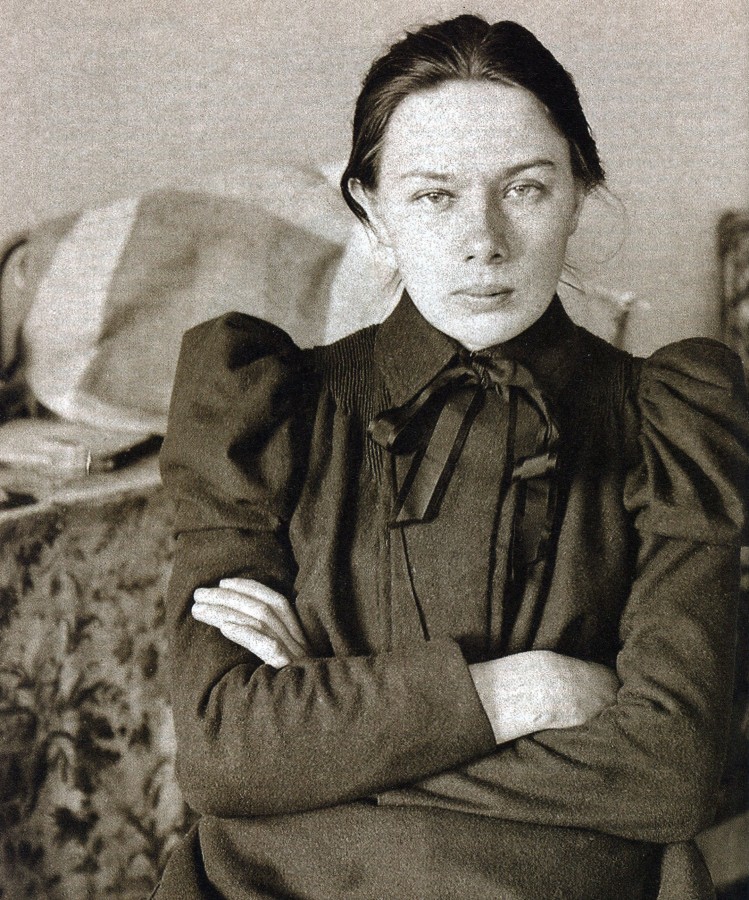It is an effective way of organizing people. The problem is that when said people enjoy the fruits of imperialism and have zero interest in giving up even a sliver of comfort to improve other people’s lives, you just have a bunch of fascists, or Swedes.
And it’s rich that he’s quoting Ho Chi Minh because he thought the French communists were a bunch of assholes because they were nationalists who only wanted socialism for the west and had no interest in giving up Vietnam as a colony. He considered illiterate peasants to be more revolutionary and knowledgeable in theory than the French, and he was correct.
Nationalism is cool when you are a small colonized nation with a culture and identity to combat exploitation with.
bunch of fascists, or Swedes.
 why did you write fascist twice?
why did you write fascist twice?Do you have a quote of Ho Chi Minh saying this?
As a model, Kim looked not to Wilson and his doctrine of self-determination limited to the subjects of defeated rival empires, nor to the United States, with its agreement to recognize Japanese imperial aims in Korea in exchange for Japan recognizing US imperial aims in the Philippines. Wilson’s “so-called doctrine,” scoffed Kim, “was nothing but an American ruse to counter the October Revolution in Russia.”67 Kim, instead, would look for inspiration to Russia and the Bolsheviks.
Lenin had called in March 1917 for “the liberation of all colonies and of all oppressed nations,”68 (emphasis added) not just those of enemy countries. It would take a superhuman effort to fight the Japanese, Kim had concluded. “We must learn from the Russian revolution and arm the people of Korea, in order to free our nation and build a new Korea of equality, freedom, and justice for all.”69
Ho Chi Minh, the revolutionary nationalist leader of Vietnam, had himself been seduced and betrayed by Wilson’s faux-liberal rhetoric about self-determination. In fact, Ho had appealed directly to Wilson at the Paris Peace Conference, and to other delegates, to no avail.70 But, Ho, like Kim Il-sung, discovered that the program of the Bolsheviks had the substance that Wilson’s (exclusionary) doctrine of self-determination lacked.
Ho recalled, after World I, living in Paris, that he “would distribute leaflets denouncing the crimes committed by the French colonialists in Viet Nam.” He was a member of the French Socialist Party, and while he attended meetings regularly, he struggled to follow the discussions, especially those concerning the split within the socialist movement, between the reformists and the communists. “What I wanted to know,” he recalled, was which of the branches of socialism sided “with the peoples of colonial countries.”71 Today, the split between reformists and communists is remembered to have originated in a disagreement over whether to achieve socialism gradually, through piecemeal reforms within the existing capitalist system, or all at once, through revolution. But there was another point of contention: colonialism. Eduard Bernstein, a leading figure in the reformist movement saw “the colonial enterprise” as desirable, and necessary to the attainment of socialist goals in Europe. Without “the colonial expansion of our economy,” he wrote, “the poverty that still exists in Europe today, which we are trying to eradicate, would be much worse and we would have much less hope of eliminating it. Even when counterbalanced by the crimes of colonialism, the benefits from colonies always weigh more heavily on the scale.”72
The communists, led by Lenin, had a different point of view. They were advocates of genuine, inclusive, self-determination— self-determination for all peoples, not just for white Europeans.
The future leader of the Indochinese struggle for independence was given a tract by Lenin, which had been published in l’Humanité, the newspaper of the French Communist Party. It was titled “Thesis on the National and Colonial Questions.”
Lenin presented the following argument. The formal or legal equality between person A, who sells his labor, and person B, who buys it, conceals a profound inequality. Person B exploits and person A is exploited. Without redressing the inequality between persons A and B, no true equality exists. “The real meaning of the demand for equality,” wrote Lenin, “consists in its being a demand for the abolition” of exploitation, or the abolition of what we might call “parasitism”—living off the labor of others. This, by itself, however, did not directly answer Ho’s question. Ho insisted on knowing whether Lenin was on the side of the colonial peoples.
A narrow reading of Lenin would suggest that his concern was with the inequality between workers and capitalists, the principal focus of much of the socialist movement to that point. But Lenin argued that exploitation wasn’t limited to the relationship between classes within countries. It also existed between countries. There exists, Lenin wrote, a “colonial and financial enslavement of the vast majority of the world’s population by an insignificant minority of the richest advanced capitalist countries.” In other words, the unequal relationship that exists between the bourgeoisie and the proletariat also exists between a minority of wealthy capitalist nations and the rest of humanity (much of which those in the wealthy capitalist nations regarded as either subhuman or intellectually, culturally, and morally inferior, incapable of self-government, and suitable only for lives of exploitation as beasts of burden.)
Democracy among nations, if it is to have any substantial meaning, cannot, Lenin wrote “be restricted to the bare, formal, purely declaratory and actually non-committal recognition of the equality of nations”; it must entail the abolition of the exploitation of one nation by another. To achieve the abolition of exploitation, both within the metropolitan countries and between nations, Lenin called for the exploited of the metropolitan countries to pursue with the exploited of the colonies a joint revolutionary struggle to overthrow the economic elites of the metropole.73 In terms of France’s domination of Vietnam, this meant that the Vietnamese as a people and French workers should pursue a joint revolutionary struggle to overthrow their common enemy, namely, the French shoguns of finance, industry and commerce who exploited both groups. The success of this strategy, of course, would depend on French workers recognizing that the affinity between themselves and the peoples of the French colonies was more significant than the linguistic and cultural affinity they had with the French elite. Nevertheless, in Lenin’s words were found not only a sincere recognition of the colonial peoples’ right to liberation, but a concrete program by which to achieve it.
Ho was ecstatic. “What emotion, enthusiasm, clear-sightedness and confidence it instilled into me!” he exclaimed. “I was overjoyed to tears. Though sitting alone in my room, I shouted out aloud as if addressing large crowds: ‘Dear compatriots! This is what we need; this is the path to our liberation!”74
Stephen Gowans, Patriots, Traitors and Empires. (pp. 38-40)
AmeriKKKans have no right to feel anything but shame and disgust for their wretched nation

Patriotism as a tool for liberation from colonialism is based. USSR against Nazis, India against Britain, Vietnam against France/U.S., Palestine against Israel etc.
Being patriotic for America as a colonial project is not that.
I just don’t really understand what you could theoretically love about American culture that would survive post revolution. You love a country that will literally not be the same as the one you supposedly have patriotism for.
Big trucks to drive to the communism factory
Zydeco and Bluegrass, baby!
I will never forgive anyone who takes them seriously. Literally national socialism
I’m not even sure what they actually believe. I’ve only ever heard that they love America and like communism.
“i’m patriotic, but only for the good things about america!” is literally just liberalism. you’re just a liberal, but with an instinct for trolling twitter marxists.
To the person that defended patsocism by bringing up Tsarist Russia, the difference is that the Soviets weren’t trying to continue Tsarist Russia, wh8le the Patsocs try to continue the imperialist USA
Here’s a Vietnamese website talking about the HCM nationalism claim http://tapchiqptd.vn/en/events-and-comments/rejecting-the-argument-that-in-essence-ho-chi-minhs-ideology-is-nationalism/20819.html
The connection is messed up and it doesn’t seem anyone has archived it
It doesn’t open
Patsuccs
deleted by creator










